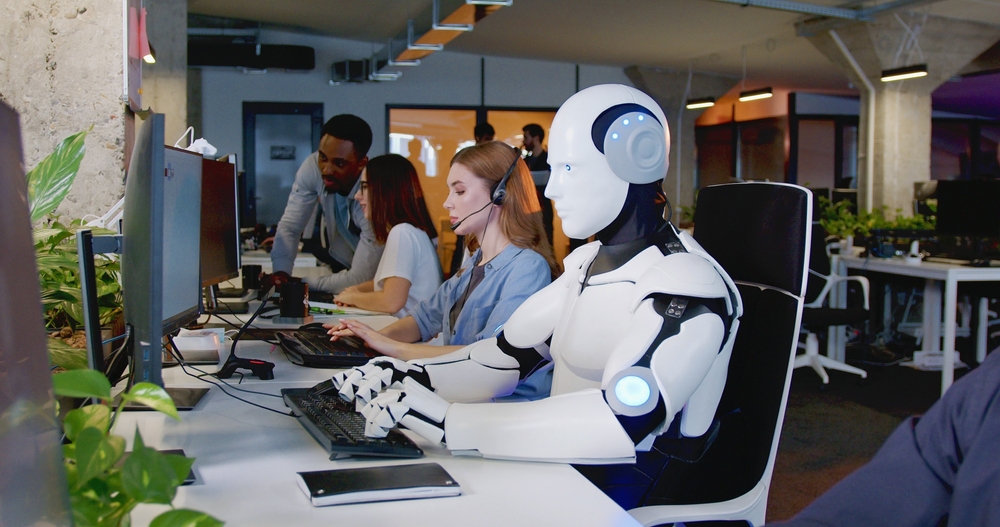Introduction
The world of marketing is undergoing a profound transformation, with artificial intelligence driving many of these changes. Today’s marketers are increasingly expected to blend analytical expertise with creative thinking, navigating a landscape that demands innovation, rapid decision-making, and strong brand alignment. According to a recent Deloitte survey, more than 60 percent of marketing leaders are now dedicating resources to AI initiatives, demonstrating clear momentum toward AI-enhanced practices. However, this shift extends beyond merely adopting new technology; roles, skills, and organizational structures must evolve to keep pace with emerging demands.
This post explores how AI-centric roles are reshaping marketing teams, the most effective approaches to workforce upskilling, and actionable strategies for recruiting top-tier talent. Organizations that successfully incorporate AI marketing roles are well-positioned to improve marketing operations while preparing for the future of marketing jobs.
The Changing Landscape of Marketing Roles in the AI Era
Over the past decade, data-driven marketing has accelerated dramatically. Traditional roles, once centered on either creativity or analytics, are converging into hybrid positions that require proficiency in both areas. Today’s marketing professionals need to understand not only how to interpret complex data sets but also how to design compelling campaigns that resonate with customers on a personal level.
Increased Demand for Analytical Thinking
As marketing operations become more sophisticated, there is a growing need for individuals who can interpret large datasets to make informed decisions about campaign performance, audience segmentation, and budget allocation. This analytical foundation enables marketers to extract meaningful insights that drive strategic decision-making.
Emphasis on Personalization
AI rapidly processes data to create content aligned with specific audience segments. This shift means modern marketers must be comfortable with personalization strategies that yield better engagement and higher conversion rates. Understanding how to leverage AI for personalization while maintaining brand consistency has become a crucial skill.
Strategy Meets Creativity
AI tools can suggest ways to optimize a marketing campaign or improve a social media ad, but the human element remains essential. Blending creative thinking with insights derived from AI is key to driving success in brand-building and customer retention. The most effective marketers can translate data insights into compelling narratives that connect with target audiences.
Emerging AI-Centric Roles
As AI becomes more embedded in marketing practices, certain job functions are gaining prominence. These positions blend an understanding of AI tools with the fundamentals of marketing strategy to deliver measurable business results.
AI Marketing Specialist
Professionals in this emerging role ensure that AI systems are being leveraged effectively across various marketing channels, from email to pay-per-click campaigns. They interpret data outputs and collaborate with creative teams to refine strategies. AI Marketing Specialists bridge the gap between technical capabilities and marketing objectives, ensuring AI implementations align with broader business goals.
Data Analyst Focused on Marketing
While many organizations already have data analysts, the role of a marketing-focused analyst continues to expand. These individuals translate analytics into actionable insights, identifying how to target the right audience at the right time and on the right channel. They work closely with marketing teams to ensure data-driven decision-making becomes standard practice.
AI Prompt Engineer
As AI tools become more common for writing copy, creating designs, or analyzing metrics, prompt engineers work on fine-tuning the inputs that guide these AI systems. By crafting precise instructions, they help AI generate content that is brand-aligned and appealing to potential customers. This role requires a deep understanding of both AI capabilities and brand voice.
Marketing Ops Visionary
Emerging technology in marketing operations brings together automation, data management, and performance analytics. Professionals in this area focus on system integrations and workflow efficiency, using AI to streamline processes such as lead management, campaign tracking, and team collaboration. They create the infrastructure that allows marketing teams to operate more effectively at scale.
Upskilling Existing Teams
Securing top AI talent is one approach to building capacity, but many organizations find it even more effective to upskill their existing workforce. Not only does this leverage an already-established base of institutional knowledge, but it also fosters loyalty and engagement as employees feel empowered by professional development opportunities.
Focused Training Programs
Workshops, certificate courses, and hands-on seminars can equip team members with essential AI fundamentals. These sessions often explore areas like machine learning basics, data interpretation, or prompt engineering. Organizations can partner with educational institutions or industry experts to develop customized training that addresses specific business needs.
Cross-Functional Project Assignments
Letting marketers rotate through data or operations projects encourages them to learn AI-driven tools firsthand. Exposure to a variety of projects broadens their perspective on how AI consistently touches all areas of marketing. This approach also breaks down silos between departments and fosters a more collaborative environment.
Encouraging Experimentation
A culture that rewards experimentation and measured risk-taking eases the fear of adopting new technologies. Employees should feel they can test AI tools and share findings without worrying about making mistakes. Creating safe spaces for learning and innovation accelerates the adoption of AI-powered marketing approaches.
Long-Term Mentorship and Coaching
Identifying in-house experts or bringing in outside specialists can keep employees motivated and supported. Mentors not only guide technical skill development but also model how to adapt AI-driven insights in ways that align with larger marketing strategies. Ongoing coaching ensures that new skills are continuously reinforced and refined.
How to Recruit for AI Marketing Competencies
For organizations looking to hire new talent, a solid recruitment strategy is vital. With many hiring managers competing for a limited pool of well-trained AI-savvy professionals, consider these best practices to stand out:
Look for Growth Mindset
Successful AI marketers often have a mindset that embraces continuous learning. During the hiring process, focus on candidates who show curiosity, adaptability, and a willingness to tackle unfamiliar challenges. Ask behavioral questions that reveal how candidates have approached learning new technologies or methodologies in the past.
Evaluate Real-World Skills
Resumes might list AI tools and programming languages, but applying these skills to real marketing scenarios is the key differentiator. Practical tests or portfolio reviews can help gauge problem-solving ability and familiarity with typical marketing metrics. Consider creating scenario-based assessments that mirror the actual work candidates would perform.
Prioritize Streamlined Collaboration
AI marketing roles often intersect with multiple teams, including analytics, creative, and product departments. Candidates who excel at bridging these realms tend to make a bigger impact than those who remain siloed. Look for evidence of successful cross-functional projects and the ability to communicate complex technical concepts to non-technical stakeholders.
Develop Partnerships with Specialized Platforms
Some organizations collaborate with educational institutions or specialized online platforms to tap into talent pipelines. Such relationships can yield a steady flow of qualified applicants whose skills are up to date. Consider establishing internship programs or sponsoring AI marketing courses to build relationships with emerging talent.
Positioning Teams for the Future of Marketing Jobs
The future of marketing jobs will continue to hinge on adaptability, creativity, and data fluency. Roles and responsibilities will evolve as AI-powered solutions become more mainstream, but there remains a consistent need for human insight to guide and shape these tools. Planning for these changes is critical to staying ahead.
Deep Integration of AI Tools
Instead of using AI on a one-off basis, successful teams weave AI throughout the marketing process, from customer journey mapping to social media research. This holistic approach unlocks more strategic uses for AI, where synergy across channels drives long-term gains. Organizations should develop comprehensive AI integration roadmaps that align with broader marketing objectives.
Focus on Ethical AI
Consumers and regulators are increasingly viewing AI through the lens of data privacy, transparency, and fairness. Companies that establish robust ethical guidelines develop greater trust and reduce the risk of missteps that can harm brand reputation. Marketing leaders should work with legal and compliance teams to develop clear policies for AI usage.
Collaborative Ecosystem
The rise of remote and flexible work has enabled teams to partner with experts globally. This ecosystem can include freelance specialists, boutique agencies, or large consultancies. Marketers gain access to a broader mix of perspectives and experiences, accelerating AI adoption with fewer geographical constraints. Building a diverse network of partners can provide specialized expertise when needed.
Enhanced Metrics and Accountability
AI can surface advanced metrics that go beyond vanity numbers. By measuring user engagement, lead quality, and lifetime customer value, companies see exactly where marketing operations can be optimized. In turn, this clarity leads to improved performance and better budgetary decisions. Developing comprehensive measurement frameworks ensures AI initiatives deliver tangible business value.
Conclusion
As the marketing landscape continues to evolve, embracing AI marketing roles and upskilling your existing workforce is no longer optional. Forward-thinking organizations strike a balance between adopting emerging technologies and cultivating the talent needed to manage them effectively. Building internal expertise, defining new roles, and investing in strategic partnerships all contribute to a dynamic, resilient marketing function that can adapt to ongoing changes in the marketplace.
If you’re ready to elevate your marketing operations with high-quality, brand-aligned content that leverages AI insights, explore Ryv AI to discover how a specialized platform can help you keep pace in this rapidly shifting landscape. By taking a measured, people-centric approach to AI adoption, your team can stay competitive in an environment that rewards agility, strategic thinking, and continuous growth.




